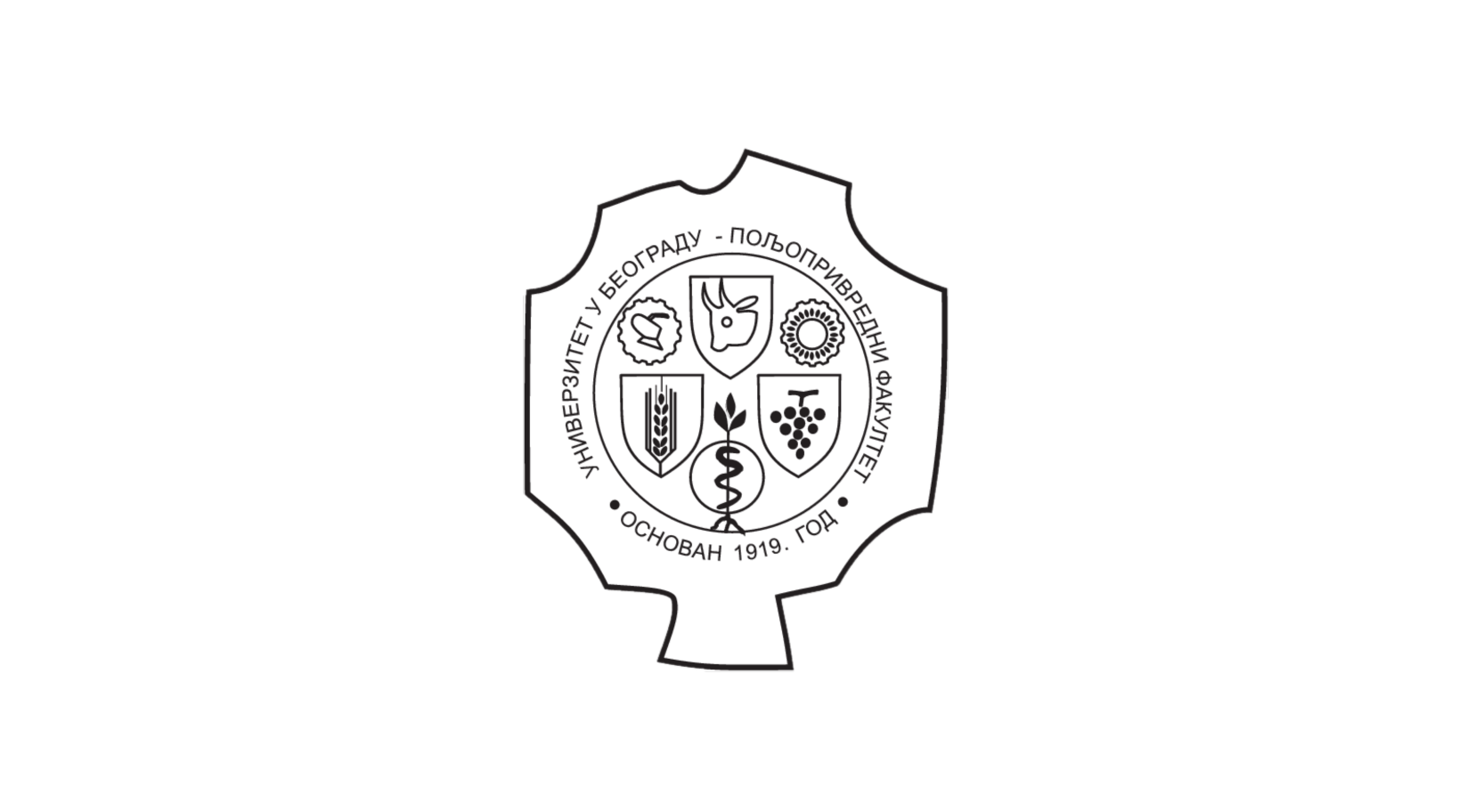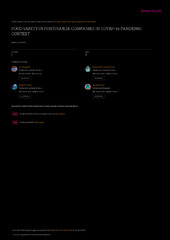Приказ основних података о документу
FOOD SAFETY IN PORTUGUESE COMPANIES IN COVID-19 PANDEMIC CONTEXT
| dc.creator | Gonçalves, João Carlos | |
| dc.creator | Guiné, Raquel P.F. | |
| dc.creator | Correia, Paula | |
| dc.creator | Tomašević, Igor | |
| dc.creator | Đekić, Ilija | |
| dc.date.accessioned | 2022-08-01T08:25:55Z | |
| dc.date.available | 2022-08-01T08:25:55Z | |
| dc.date.issued | 2022 | |
| dc.identifier.issn | 1857-8489 | |
| dc.identifier.uri | http://aspace.agrif.bg.ac.rs/handle/123456789/6153 | |
| dc.description.abstract | The Food Safety Management System (FSMS) seeks to ensure the quality of food products in the whole food supply chain. In Portugal, like in all European Union countries, enterprises working in the food sector have to fulfil several regulations of food safety and quality to assure those food products won’t compromise consumers’ health. The COVID-19 pandemic brought additional challenges for companies and their food safety systems. Governments also have decreed new (additional) hygiene measures to be implemented by companies and applied to workers when handling products, such as: use of masks, more frequent hand sanitization, the distance between workers, more frequent cleaning of surfaces, etc. The aim of this study is to assess the most important aspects/challenges caused by the COVID-19 pandemic in Portuguese food production companies. The instrument used in this study was a survey voluntarily answered by 58 Portuguese companies acting in the food sector, by those responsible for the quality sector, or by those in management positions, using an online platform (Slido®). The data was collected in the period from May to August 2020, and the data analysis was made using an Excel database and spreadsheet functionalities. The results showed that the HACCP (part or included in ISO 22000) is the most implemented food safety system in Portuguese companies (in above 50% of the companies included in the study). Also, 20% have International Featured Standards (IFS) certification, and 16% declare to have implemented the ISO 22000 standard. Among the different attributes available, the attribute selected by Portuguese companies as most influential (most scored) to affect the integrity of the companies’ FSMS was the “temperature checking of workers”, and the least influential was the “staff awareness”. Furthermore, a great majority of the companies revealed that the FSMS include documents associated with response/incidents affecting food safety; that COVID-19 pandemic was identified as originating potential emergencies in the FSMS; and that the food safety teams were trained on how to react in case of a pandemic. Globally, companies’ respondents also admit that their FSMS allowed reacting to the pandemic of Covid-19, providing additional training to their staff to implement supplementary personal hygiene procedures (as: handwashing, physical distance, …), reinforce the use of personal protective equipment (such as masks), or adjust the sanitation/ cleaning practices associated with hygiene of the objects. According to the results, the market/retail was the sector of the food supply chain most affected due to pandemic Covid-19, and the Primary sector the least affected. In conclusion, the companies are, in general, committed to implement and reinforce the measures related to the FSMS, even under difficult circumstances like those resulting from the COVID-19 pandemic. © 2022, Consulting and Training Center - KEY. All rights reserved. | |
| dc.language | English | |
| dc.rights | openAccess | |
| dc.rights.uri | https://creativecommons.org/licenses/by-nc-nd/4.0/ | |
| dc.source | Journal of Hygienic Engineering and Design | |
| dc.source | Journal of Hygienic Engineering and Design | |
| dc.source.uri | http://hdl.handle.net/10400.19/7231 | |
| dc.subject | COVID-19 | |
| dc.subject | Food safety systems | |
| dc.subject | Pandemic | |
| dc.subject | Portuguese companies | |
| dc.subject | Survey | |
| dc.title | FOOD SAFETY IN PORTUGUESE COMPANIES IN COVID-19 PANDEMIC CONTEXT | |
| dc.type | article | en |
| dc.rights.license | BY-NC-ND | |
| dc.citation.epage | 39 | |
| dc.citation.spage | 32 | |
| dc.citation.volume | 38 | |
| dc.identifier.fulltext | http://aspace.agrif.bg.ac.rs/bitstream/id/23973/FOOD_SAFETY_IN_pub_2022.pdf | |
| dc.identifier.rcub | https://hdl.handle.net/21.15107/rcub_agrospace_6153 | |
| dc.type.version | publishedVersion |


